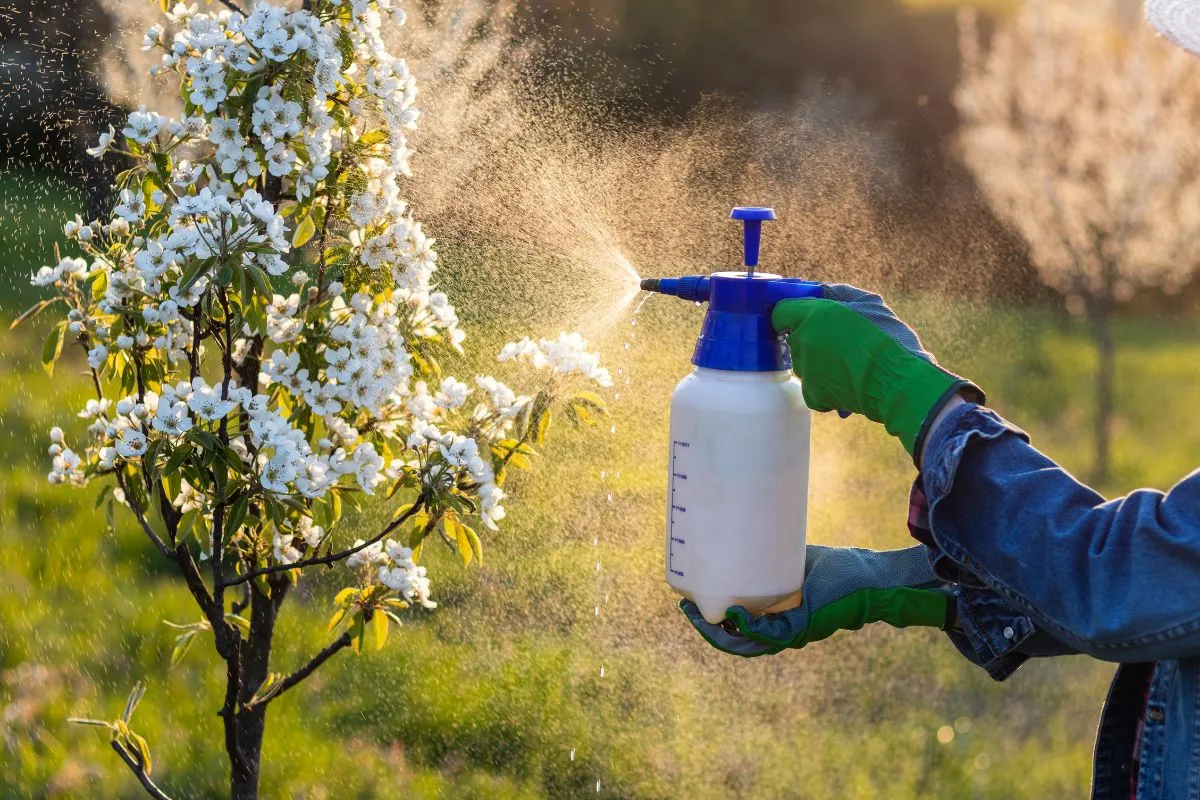Pests in gardens can be an enormous source of frustration, but using natural solutions is much better for both the environment and your garden’s well-being. Sometimes just having some birds or beneficial insects around will suffice in keeping pest problems under control.
Interplanting vegetables with herbs and flowers can also help protect them. Marigolds repel tomato-pinworms while sage repels blackfly.
- Use a natural repellent
Natural repellents offer an effective and eco-friendly solution to protecting your garden. Plants such as catnip, dill and chrysanthemums produce strong smells which deter pests; alternatively a mixture of two parts vinegar to one part water makes an effective natural bug spray.
Neem oil is another effective choice to consider for garden pest management, derived from the seeds of the neem tree and made up of antimicrobial molecules extracted from these seeds. Neem oil disrupts many garden pests’ lifecycles while acting as a fungicide and soil amendment.
Regular inspections of your garden are the best way to reduce pests and diseases that afflict it, with physical barriers like row covers or netting acting as deterrents against insects and other critters from reaching your plants. Compost and well-rotted manure addition are additional strategies that can boost its health, further benefitting its success.
- Keep the soil moist
Many insects and fungi thrive in damp soil. Watering early in the day helps avoid wet foliage that encourages fungal damage, while drip irrigation or other methods that deliver water directly to plant roots without wetting leaves and flowers are effective solutions.
Keep the soil moist to reduce pests, and use food-grade diatomaceous earth (available at garden stores) as an natural, safe, and effective insecticide to sprinkle on it – this cuts through hard-bodied insect’s waxy exoskeleton and dehydrates them by cutting their waxy exoskeleton and dehydration processes.
Nematodes can also help control snails and slugs; you can purchase beer-based traps or populations of dormant nematodes to attack and kill pests while remaining dormant in the soil. Rotating crops annually may also help avoid plant-specific pest problems.
- Apply a natural fertilizer
Natural fertilizers offer the added advantage of not containing harsh chemicals that could endanger soil health, garden plants or your family’s wellbeing. But it’s important to keep in mind that even natural products may still pose potential threats if used improperly.
Coffee grounds can help repel aphids while adding nutrients to the soil, providing an effective means of repelling them and adding nutrients back into your garden. Simply sprinkle some around your plants! Similarly, water combined with rubbing alcohol makes a powerful insect spray against whiteflies, aphids, mealy bugs, scale insects and thrips; while mixing 1 quart of water with 1 tablespoon of neem oil provides an effective plant tonic which also prevents powder mildew formation.
Other natural fertilizers available to gardeners include blood meal and seabird guano. Both materials provide a source of nitrogen which promotes leaf growth and flowering.
- Keep the garden weed-free
Pesticides used in food production (and by people everywhere) don’t just aim at killing bugs; many also contain herbicides (weed killers). I avoid these products entirely as they contaminate soil, are unnecessary to maintaining healthy gardens, and could ultimately harm ecosystems.
Slugs and snails cause damage to foliage, flowers, roots and crops by feeding on them. Their shiny slime trails often appear during night or overcast weather – use sticky traps or handpicking when they appear; additionally use mulching materials like eggshells, coffee grounds or diatomaceous earth to help combat them.
Tent-making caterpillars feed on vital fluids found within woody plants, leading to stunted and stunted growth as well as branch dieback. To protect trees and shrubs from these tent-making pests in late winter, spray trees and shrubs with dormant oil spray to suffocate them and eliminate their presence.
- Keep the garden clean
Preventing diseases and insects from attacking healthy plants is easier than trying to eliminate them once they’ve taken hold. Be vigilant, monitor plants closely, detect problems early, and act swiftly – being vigilant will allow you to catch problems early and take preventive steps promptly.
Make garden cleanup part of your routine. Neglecting to dispose of decayed tomatoes, squash vines and other debris leaves the door open for pests and pathogens to enter the garden, leading to pestilence and pathogenicity.
Maintaining an environment without weeds also reduces their ability to shade or compete with garden crops.
Plant flowers such as marigolds and nasturtiums to repel pests while also drawing pollinators into your garden, thus contributing to its overall health. When selecting vegetables to plant in your garden, choose varieties resistant to common diseases like verticillium and fusarium and those tolerant of nematodes like potatoes and root vegetables – these will serve to repel nematodes (hoverflies, lacewing larvae and praying mantises will devour any aphids!).




